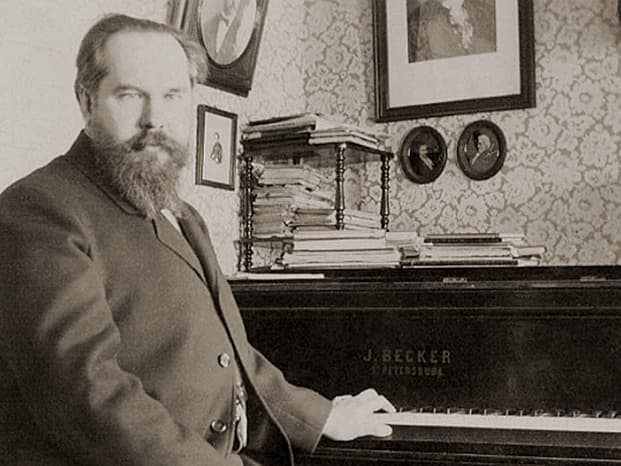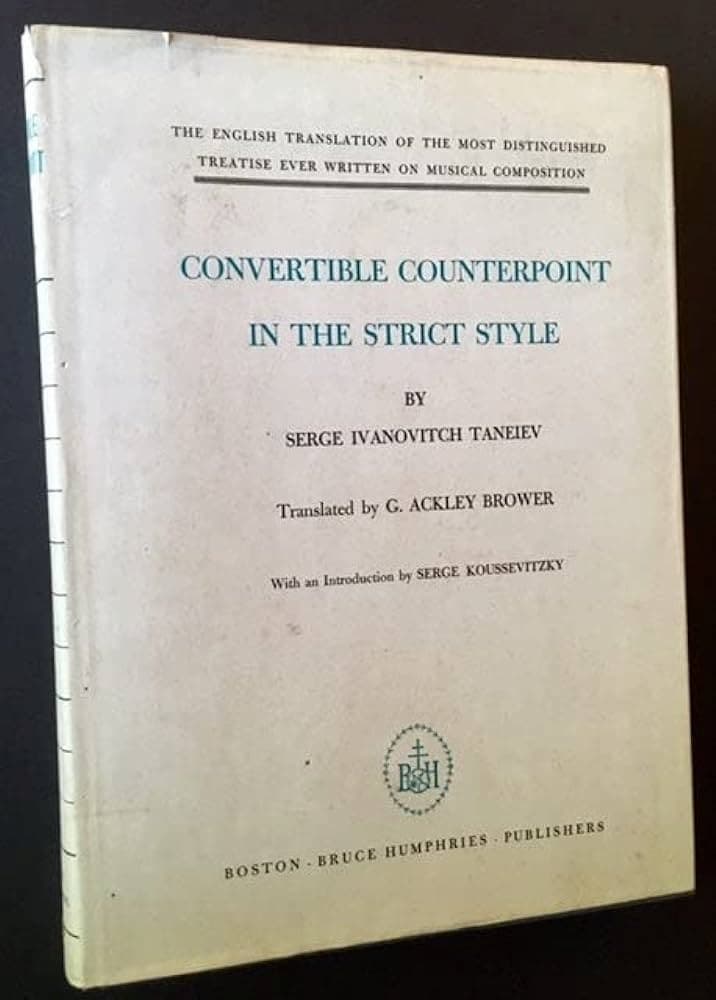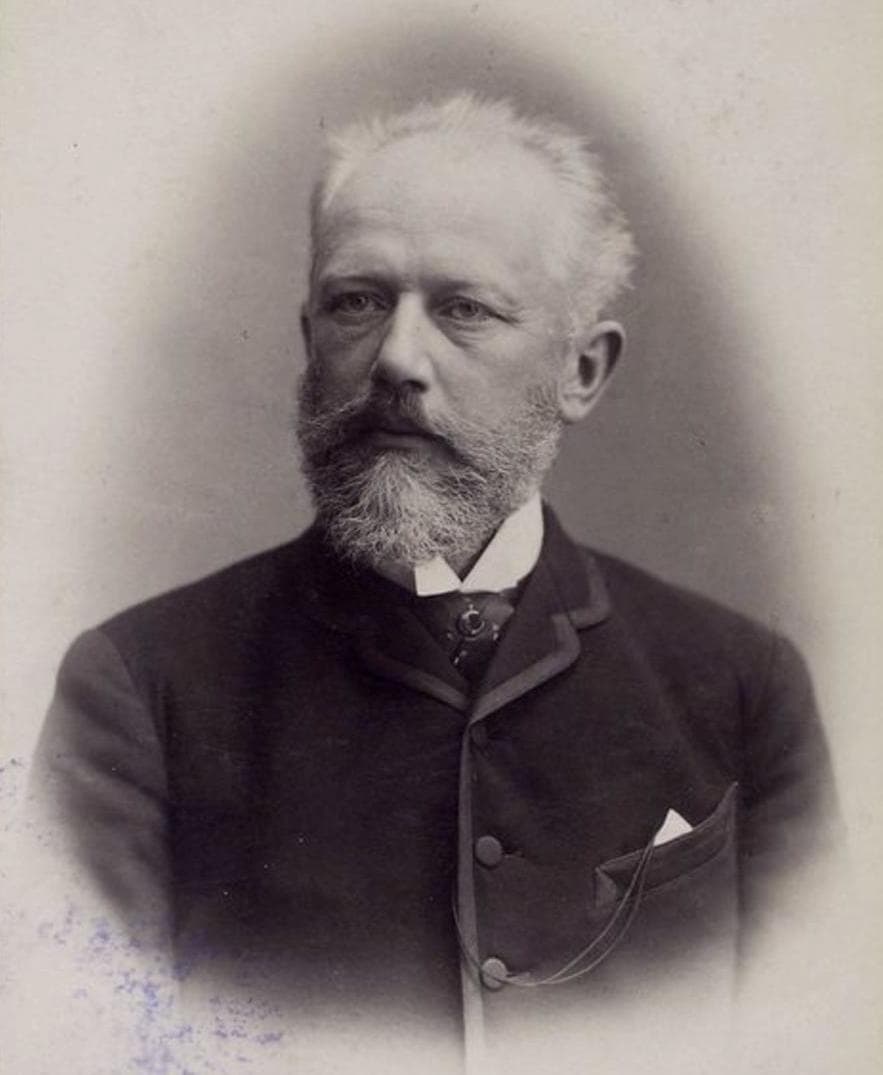A highly gifted pianist and composer, Sergei Taneyev (1856-1915) was one of Russia’s most influential music theorists. His treatise on counterpoint was called “one of the best books of its kind” by Stravinsky. The delightful blend of rigorous counterpoint, brilliant orchestration and supreme composition skill gave Taneyev a distinct voice, and as a protégé and champion of Tchaikovsky he helped to shape the next generation of composers.
Sergei Taneyev: Piano Quartet in E Major, Op. 20
The Beginning

Sergei Taneyev
Sergei Taneyev was born on 25 November 1856 in the town of Vladimir, part of a cluster of ancient towns known as the Golden Ring, east of Moscow. He was the youngest son of Ivan Ilyich Taneyev, a state councillor, physician and amateur musician, and his wife Varvara Pavlovna, nee Protopopova. The family was cultured and well-read, and part of the Russian nobility. A distant cousin, Alexander Taneyev, was also a composer, whose daughter, Anna Vyrubova, was highly influential at court.
Displaying enormous musical talent at an early age, Sergei had his first piano lessons at the age of five. His progress was phenomenal, and in 1866, aged just nine, he enrolled in the Moscow Conservatory studying piano first with Eduard Langer, and then Nikolay Rubinstein. Rubinstein immediately decided that Taneyev belonged “to a number of a very few chosen ones,” declaring that he would grow to be an excellent pianist and a great composer. Within a few years, while still a student at the Conservatoire, Taneyev became known as one of the best performers of his generation.
Sergei Taneyev: Theme and Variations in C minor (Joseph Banowetz, piano)
Friendship With Tchaikovsky

Sergei Taneyev’s Counterpoint Treatise
However, probably most importantly for his musical career, Taneyev joined the composition class of Pyotr Ilyich Tchaikovsky in 1871. In time, Taneyev would become the most trusted musician among Tchaikovsky’s friends, and “they developed a romantic relationship that would last until Tchaikovsky’s death.”
Stylistically, Taneyev was understandably under the influence of Tchaikovsky during the early years of his career. A good many compositions dating from the 1870s were inspired by Tchaikovsky’s works in instrumental, vocal, and symphonic genres. Taneyev’s First Symphony in E minor was surely inspired by the premiere of Tchaikovsky’s “Little Russian” in 1873. Taneyev’s symphony was completed in 1874 and presented at his final examination, earning the 18-year-old composer a gold medal in compositions.
Sergei Taneyev: Symphony No. 1 in E minor (Russian State Symphony Orchestra; Valery Polyansky, cond.)
Finding His Composition Style

Pyotr Ilyich Tchaikovsky
Craftsmanship in music became one of Taneyev’s most important ingredients, and he turned towards a concentrated study of counterpoint. Always considering counterpoint as a branch of pure mathematics, his gigantic two-volume treatise titled Convertible Counterpoint in the Strict Style, carries an inscription from Leonardo da Vinci that reads, “No branch of study can claim to be considered a true science unless it is capable of being demonstrated mathematically.”
His approach to composing music by focusing on strict counterpoint is described in a letter to Tchaikovsky. “I spend a great deal of time on preparatory work, and less time on final composition. Some items I have not finished within the last few years. Important themes which are repeated in the opera, are used by me objectively, without any reference to a particular situation, for studies in counterpoint. Gradually, from this chaos of thoughts and sketches something orderly and definite begins to emerge.”
Sergei Taneyev: String Quartet No. 2 in C Major, Op. 5 (Carpe Diem String Quartet)

Taneyev’s opera Oresteia
We get an even more detailed description of Taneyev’s compositional process from Rimsky-Korsakov. “Before setting out for the real expounding of a composition, Taneyev used to precede it with a multitude of sketches and studies: he used to write fugues, canons, and various contrapuntal interlacings on the individual themes, phrases, and motives of the coming composition.”
Rimsky Korsakov continues, “and only after gaining thorough experience in its component parts, did he take up the general plan of the composition and the carrying out of this plan, knowing by that time, as he did, and perfectly, the nature of the material he had at his disposal and the possibilities of building with that material.” For Taneyev, truth and moral integrity in music were synonymous with objectivity and purpose—anything casual or extraneous was to be discarded.
For more of the best in classical music, sign up for our E-Newsletter
